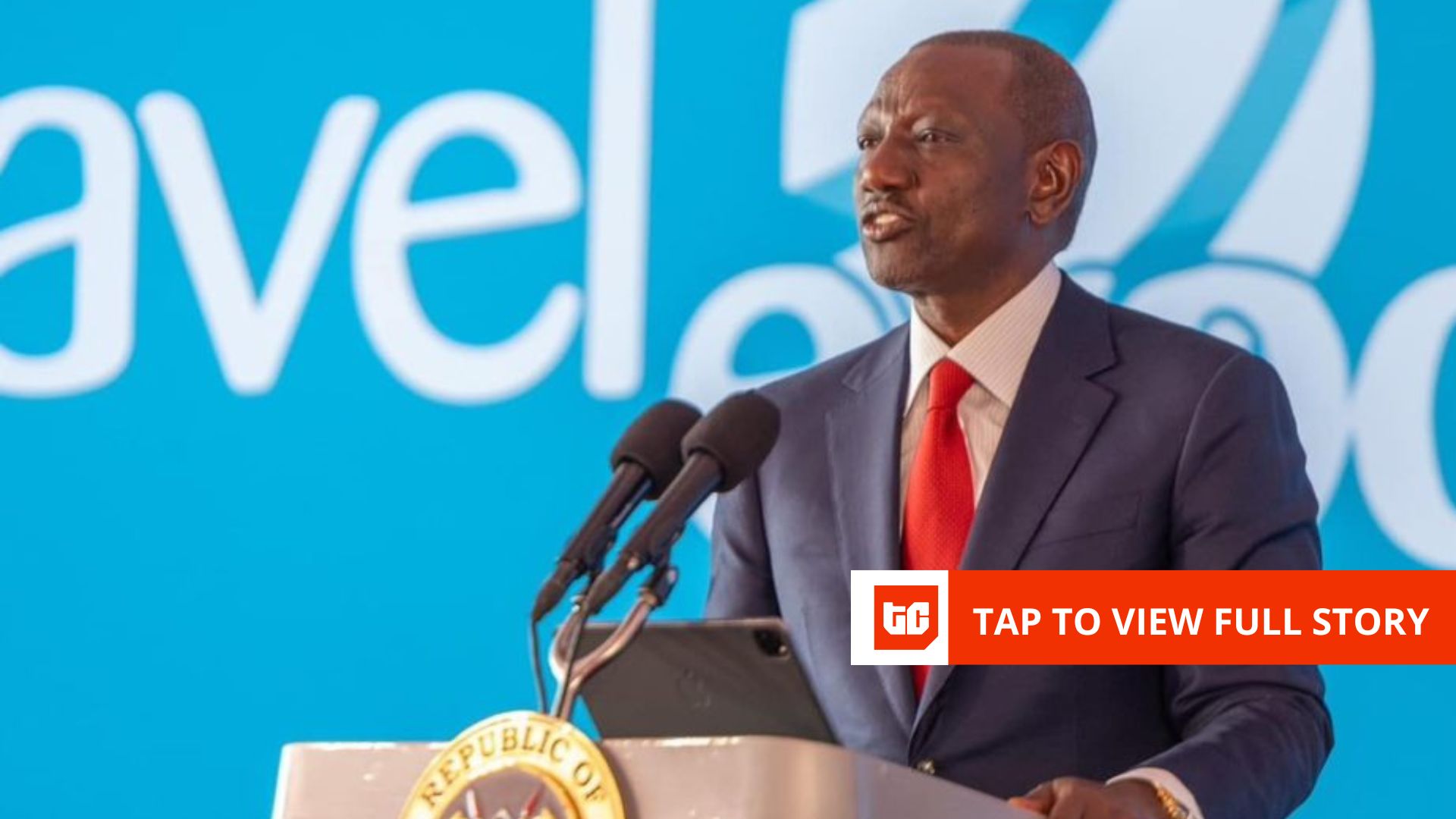Kenya’s economy is $56.6 billion smaller than Nigeria’s, with a population of about a quarter of Africa’s most populous nation. Yet, the East African nation consistently collects more taxes.
The contrast could be due to structural weaknesses in Africa’s fourth-largest economy. For decades, Nigeria has relied on oil revenues, with tax revenues remaining among the lowest in the world, at less than 10% of GDP. By comparison, Kenya collects around 15% of its GDP in taxes.
Kenya’s GDP per capita of $2,470 outshines that of Nigeria ($806.84), which might explain some tax collection disparities.
Nigeria’s public finances remain exposed to oil price fluctuations, inflation, and rising debt costs. Kenya’s broader tax base has not eliminated these fiscal pressures, but it generates more relative to its size—an estimated $20 billion annually, compared to Nigeria’s target of about $12 billion in the next financial year.
Kenya’s approach
The Kenya Revenue Authority (KRA), the state agency responsible for tax collection, has built a diversified tax base, leveraging technology. The agency collects income tax, VAT, excise duties, customs revenues, and, more recently, digital service taxes.
Enforcement has been enhanced through electronic invoicing (eTIMS), mobile-based filing, and closer integration with banks and telecom operators. Mobile money platforms such as Airtel Money and M-Pesa, which handle transactions worth more than 50% of Kenya’s GDP annually, have expanded the taxable base by bringing more of the economy into formal financial channels.
This has resulted in steady growth in collections from KES 1.67 trillion ($12.9 billion) in FY2020/21 to KES 2.57 trillion ($20 billion) in FY2024/25, averaging over 11% annually. The tax-to-GDP ratio has remained around 14–15% in recent years, nearly double Nigeria’s 7–9%.
Part of Kenya’s edge comes from how far its taxman is willing to go. The Kenya Revenue Authority has built a reputation for mixing technology with old-fashioned snooping. Officers now scan social media to see if the lifestyles people flaunt online match what they declare on their tax returns. In a 2024 crackdown, more than 460 wealthy individuals were flagged for living large while paying little.
The agency has also gained access to payroll and payment records for civil servants and government suppliers, giving it another layer of visibility into incomes that might otherwise go under the radar. On the financial side, KRA has started linking its systems directly with banks and mobile money platforms like M-Pesa, which most Kenyans use daily. That makes it harder to hide money flows outside the tax net.
And the push doesn’t stop with traditional assets. Kenya is among the few countries in Africa moving to tax cryptocurrency transactions, with rules being drawn up to make sure crypto exchanges feed data straight into the revenue system. All of this has steadily expanded the pool of taxable activity — a big reason why Kenya manages to collect more revenue, despite being a much smaller economy than Nigeria.
To tighten compliance further, KRA has deployed a new class of field agents with paramilitary training known as Revenue Service Assistants (RSAs). Around 1,400 of them were trained to help with tax registration, verify taxpayer information, ensure traders issue proper receipts, and support the rollout of systems like eTIMS and iTax. These assistants also make physical visits to businesses to help them comply with excise and other regulatory requirements.
On the enforcement side, KRA has penalties for individuals or companies between KES 1,000 ($7.74) and KES 1 million ($7,740) for non-compliance. Tax compliance certificates are a requirement for people applying to government jobs, suppliers seeking contracts, and citizens running for public office.
Nigeria’s catch-up effort
Unlike Kenya, Nigeria has a trust deficit between the government and its citizens, who doubt that the government will spend funds wisely, due to documented cases of mismanagement.
“This leads to a high level of tax evasion and aggressive avoidance,” said Taiwo Oyedele, who now leads Nigeria’s tax reform efforts, in 2022.
Only about 10 to 12% of Nigerians pay tax, and just 9% of corporates comply. The International Monetary Fund (IMF) agrees that poor compliance and weak tax morale are major issues, but it also highlights Nigeria’s generosity with exemptions and low rates. In 2021 alone, ₦6.8 trillion ($4.57 billion) was foregone due to tax exemptions.
Also, the country’s VAT collection efficiency—the ratio of actual revenues to potential revenue— is among the lowest in Africa. It noted that the country can increase tax revenues if priority reforms are implemented. With oil revenues drying up, the government has taken this advice to ramp up tax collection efforts.
Non-oil tax collections increased to ₦15.94 trillion ($10.71 billion) in 2024 from ₦5.97 trillion ($4.01 billion) in 2022, mainly through VAT, corporate income tax, customs duties, and the electronic money transfer levy.
The government is now targeting ₦16.05 trillion ($10.79 billion) in 2025, ₦17.85 trillion ($11.99 billion) in 2026, and ₦19.73 trillion ($13.26 billion) in 2027.
To achieve these targets, new tax legislation signed in June 2025 increased capital gains tax from 10% to 30% for corporations, introduced progressive income tax brackets, and imposed taxes on crypto transactions.
In a separate policy document, the government outlined measures to expand VAT collection agents, simplify compliance, reduce tax expenditures, and employ technology to enhance transparency and enforcement.
The Federal Inland Revenue Service (FIRS), Nigeria’s tax collection agency, relies on its TaxPro Max, launched in 2021, to enable online filing and payments. Since August 1, 2025, large businesses with turnovers exceeding ₦5 billion ($3.36 million) must integrate their invoicing systems with the FIRS platform for real-time validation and reporting.
VAT collection in supermarkets, hotels, and retail outlets will also be automated, and a real-time data mining portal will facilitate desk reviews, audits, investigations, and prevent leakages.
Authorities argue that Nigeria’s VAT rate — 7.5% compared with Kenya’s 16% — is too low for its ambitions, but political resistance blocked a recent proposal to raise it to 10%.
FIRS is also linking its database with the Nigeria Inter-Bank Settlement System Plc (NIBSS), the Nigeria Customs Service (NCS), the Nigerian Communications Commission (NCC), and the Corporate Affairs Commission (CAC), mirroring Kenya’s effort to go to any length for its taxes.
Banks and financial institutions will also face tighter monitoring as FIRS reconciles remittances of the EMTL, a ₦50 charge on transfers of ₦10,000 and above.
On the enforcement side, Nigerians who fail or refuse to register for tax will be fined ₦50,000 ($33.60) in the first month, and ₦25,000 ($16.80) for other subsequent months. Any company that awards a contract to an unregistered person will also be fined ₦1 million ($672.09).
Nigeria aims to increase its tax-to-GDP ratio from below 10% to 18% by 2027. Nigeria still has a long way to go to fulfil its tax revenue potential, but it has started the long walk there.
Note: exchange rate used: ₦1,487.9/$
Mark your calendars! Moonshot by is back in Lagos on October 15–16! Meet and learn from Africa’s top founders, creatives & tech leaders for 2 days of keynotes, mixers & future-forward ideas. Get your tickets now: moonshot..com











